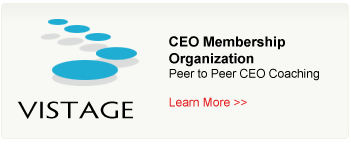Trust: Decades to earn, seconds to lose (CEO interview video)
Sat, Feb 2, 2008
Will you do business with me and treat me fairly if you don’t trust me? Will you take a major risk with me without a thicket of legal protections? Will I do these with you if I check you out and you’re not trustworthy?
Your character first gets shaped in childhood. Maybe a parent or grandparent leads by example or brings you up short when you violate a principle. Many of my CEOs have shoplifted at some point and faced the consequences, with a parent who administered judgment and, in some instances, took the child back to face the retailer. They did not want to have that feeling again. They would hear the voice of the parent or grandparent decades later as they made a tough moral choice in business.
And my CEOs have shared a powerful insight: your real moral standards are not permanent until they have been tested in the real world with real personal stakes. As one said: “We all have a little larceny in us.” If you feel good about what you got away with, you are on your way down the greasy pole. If you never want to feel that way again, you are on the right path. It is not just about whether you get caught. Hopefully, it happens early in your career.
As Tom Friedman of the New York Times reminds us: today what you say and what you do are part of a permanent record, because of the internet and the media. And Sarbanes Oxley makes leaders personally accountable for the veracity of financials. And, as Stephen M.R. Covey shows in his recent book The Speed of Trust: The One Thing That Changes Everything, there is a business case for being trustworthy as it facilitates doing business in a global world where relationships count even more than ever. All in all, sound reasons to act with good purpose whether or not someone is looking or will find out.
The news always gives more coverage to what I have called “masks,” those who pretend to have character and a strong leadership core. That is why we read about John Mackey using a pseudonym to bash an acquisition target, Conrad Black in self-dealing and many more leaders who are either in or on their way to jail. They fail the Arrow Electronics test: “Would your grandmother be proud if she read about what you did in the home town paper?”
My personal experience with dozens of CEOs face to face and with the Vistage International organization of 13,000 CEOs and business owners is that there are far more good guys than the number of masks who make the news.
Consider this clip from Samuel DiPiazza, the CEO of the world’s largest public accounting firm.
Tags: Samuel A. DiPiazza, Trust
 Countless more ordinary people of equal talent never developed the leadership core required to run the show. Why not?
Countless more ordinary people of equal talent never developed the leadership core required to run the show. Why not?

I completely agree with the clip and the article regarding trust.